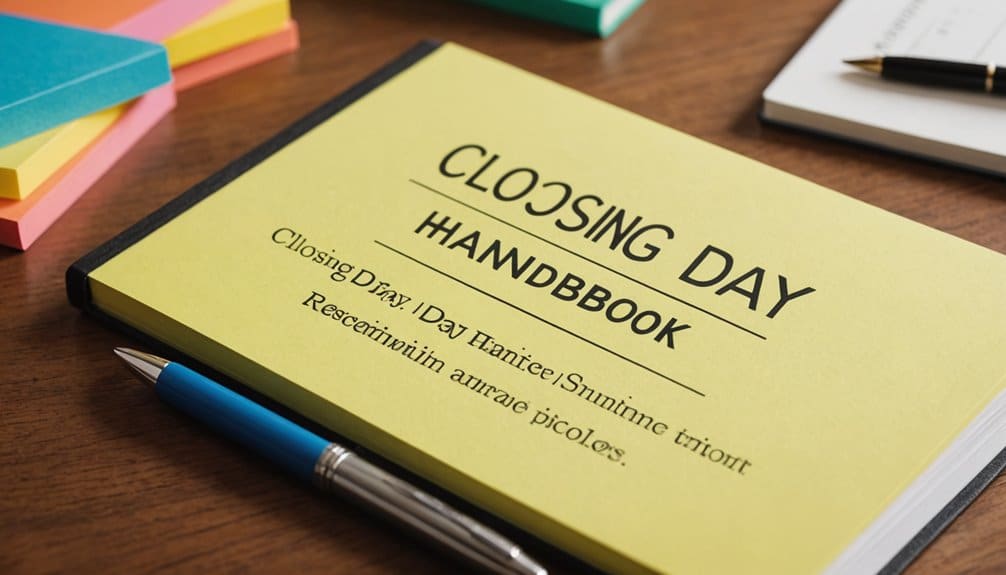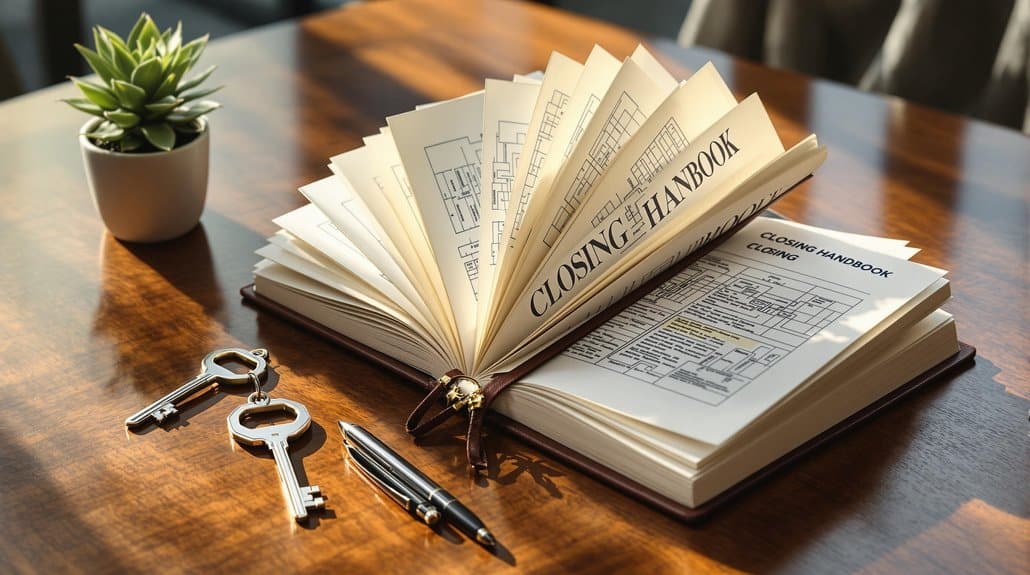The home closing is one of the most exciting moments in any real estate journey, but it can also feel overwhelming if you’re not fully prepared. As a seasoned Florida real estate broker, I understand how important it is to ease concerns and ensure every detail is addressed. Buyers and sellers alike need to take specific steps to make this day successful. Buyers should secure financing, complete a thorough home inspection, and ensure homeowners insurance is in place. Sellers must prepare documents, clear titles, and finalize any outstanding property obligations.
On the day of the home closing, expect to sign key documents transferring ownership and verifying financial details. Bring a valid ID and any required documentation to avoid delays. It’s also vital to coordinate with your real estate agent, attorney, and title company to ensure everything runs smoothly. Common challenges, such as documentation errors or last-minute financing issues, can arise, but a strong support team will help address them quickly.
Remember, your real estate broker or attorney is there to answer any questions and guide you every step of the way. Don’t hesitate to reach out if you’re unsure about any part of the process. A little preparation goes a long way in reducing stress, so focus on the excitement of reaching this significant milestone. With this handbook and the proper guidance, your home closing can be a smooth and memorable experience.
Essential Key Takeaways for a Smooth Home Closing ProcessKey Takeaways
- Ensure all required identification documents, including a government-issued ID and proof of insurance, are ready for closing day.
- Review the Closing Disclosure for accuracy to understand all transaction costs before signing.
- Be prepared for document signing, which can take 60-90 minutes in-person or 30-60 minutes remotely.
- Verify fund transfers post-signing to comply with good funds laws and ensure a smooth transaction.
- Communicate effectively with all parties involved, including agents and attorneys, to prevent delays and address any challenges.
What Happens on Closing Day?
The pre-closing phase is a critical period that sets the foundation for a successful genuine estate transaction. It involves meticulous steps for both buyers and sellers. For buyers, key actions include providing an earnest money deposit to demonstrate commitment, applying for and securing loan approval, conducting a home inspection, and negotiating any necessary repairs. Additionally, understanding mortgage preapproval can significantly enhance a buyer’s position in negotiations.
Sellers, on the other hand, must review contracts, prepare for buyer inspections, verify financing, and confirm the property title is clear. Both parties must engage in constant communication and coordinate with the closing agent to prepare vital documents. Additionally, a title search is essential to ensure that the property has a clear title and is free of liens or claims. By diligently following these pre-closing steps, buyers and sellers can foster trust and guarantee a smoother shift to closing day, ultimately fostering a sense of belonging in their new home.
On closing day, several key activities take place to finalize the transaction and transfer ownership:
| Activity | Description |
|---|---|
| Document Signing | Buyers and sellers sign necessary legal and financial documents. |
| Funds Transfer | Buyers provide the remaining funds, and sellers receive payment for the property. |
| Title Transfer | The property title is officially transferred to the buyer. |
| Key and Property Handover | Sellers hand over the keys and possession of the property to the buyer. |
These steps ensure that both parties leave the closing table with confidence and satisfaction in the completed transaction.
Closing Day Procedures
On closing day, a series of critical procedures must be followed to guarantee a smooth transaction. This includes the meticulous signing of documents, verification of fund transfers, and the formal steps needed to complete the ownership transfer. Adhering to these protocols is vital for a successful closing experience for all parties involved. It is essential to review the Closing Disclosure provided by the lender to ensure accuracy before proceeding with the signing.
Document Signing Process
Successful document signing on closing day is imperative for a smooth property transaction. In-person signings typically last 60-90 minutes, during which buyers, sellers, agents, and attorneys convene to execute vital documents, including the deed and settlement statements. Efficient coordination is critical to prevent delays, so it is recommended that any questions be addressed beforehand.
Alternatively, remote signing offers flexibility. It takes 30-60 minutes, provided participants have a reliable internet connection and are familiar with digital tools. Regardless of the method, it is fundamental to have the required documents, such as a government-issued ID and proof of homeowners insurance. Document accuracy is crucial, as errors can lead to significant transaction delays. Ultimately, a well-organized signing session fosters confidence and belonging among all parties, ensuring a successful shift into property ownership.
Fund Transfer Verification
Following the document signing process, verifying fund transfers is a critical step that guarantees all financial obligations are met before the transaction is finalized. This guarantees a smooth closing experience for both buyers and sellers. In fact, Good funds laws ensure that secure and verified funds are utilized in real estate transactions to protect all parties involved.
| Transfer Method | Advantages | Considerations |
|---|---|---|
| Wire Transfers | Guaranteed funds upon deposit | Cutoff times may delay transfers |
| Bank Cashier’s Checks | Secure and reliable | Requires bank verification |
| Vanguard Title ePay | Fast and electronic | Limited to earnest money transactions |
To promote success, obtain wiring instructions, confirm fund availability, and track the transfer using the Federal Reference number. Effective communication is crucial for navigating common issues and promoting a seamless process for all parties involved.
Ownership Transfer Steps
A seamless ownership transfer is vital for guaranteeing that both buyers and sellers experience a smooth closing day. Understanding the key steps involved can foster confidence and clarity throughout the process.
- Signing Documents: Both parties must sign necessary legal documents, including the deed and closing disclosure.
- Finalize Financial Aspects: Complete all financial transactions, guaranteeing clarity on closing costs and adjustments. Additionally, ensuring compliance with Florida statutes during this phase is crucial for a valid transfer.
- Transfer Ownership: Officially transfer ownership by signing the deed.
- Record Deed: Submit the signed deed to the county clerk’s office to document ownership change.
- Distribute Copies: Provide recorded deed copies to all relevant parties for accountability.
Following these steps diligently will help guarantee a successful conversion into your new property, reinforcing trust and satisfaction for all involved.
Essential Closing Documents

Closing day is a significant moment in the authentic estate transaction process, marked by the signing of important documents that facilitate the transfer of ownership. Understanding these fundamental documents is essential for both buyers and sellers to guarantee a smooth changeover. Additionally, experienced real estate professionals play a key role in streamlining the closing process and providing critical guidance. Local realtor expertise can help ensure that all necessary documents are prepared accurately.
| Document Type | Purpose | Signer |
|---|---|---|
| Closing Disclosure (CD) | Lists all transaction costs | Buyer/Seller |
| Deed | Transfers property title | Seller |
| Promissory Note | The loan agreement for the buyer | Buyer |
| Title Insurance Policy | Protects buyer’s title rights | Buyer |
These documents form the backbone of the closing process, safeguarding the interests of everyone involved. Guaranteeing clarity and accuracy in each document will foster confidence and a sense of belonging in your real estate experience.
Required Items for Closing
As you prepare for closing day, it is vital to guarantee you have all required items on hand to facilitate a smooth transaction. Important identification documents, proof of payment methods, and necessary insurance documentation are fundamental for both buyers and sellers. Being organized and thorough in gathering these items will help streamline the closing process and avoid potential delays. Additionally, ensure you have the Closing Disclosure to review financial obligations before signing. Understanding your mortgage options can also provide clarity on your financial commitments moving forward.
Essential Identification Documents
Steering through the closing process requires keen attention to detail, particularly regarding critical identification documents. Having the correct IDs facilitates a smooth transaction and guarantees compliance with legal requirements.
Prepare the following important identification documents:
- U.S. driver’s license or valid photo ID
- U.S. passport or foreign passport
- Social Security card or Medicare card
- Voter registration card or student ID
- Insurance card or credit card
All names on the IDs must match the closing documents. Verify your IDs are current and valid, as counterfeit documents can lead to significant delays. Furthermore, your lender may request further identification, so be ready to present any necessary paperwork.
Proof of Payment Methods
Ensuring the availability of appropriate payment methods is vital for a successful closing process, as it directly impacts the transaction’s efficiency and legality. Buyers should be prepared to present cashier’s checks, certified checks, or proof of wire transfers to cover closing costs and down payments. It is important to note that only liquid capital, such as funds from savings or money market accounts, qualifies as proof of funds (POF).
A POF letter from a verified banking institution must detail the bank name, account balance, and date. Remember, preapproved mortgage letters do not suffice as proof of funds. By adhering to these payment guidelines, you contribute to a seamless and successful closing experience for all involved parties.
Insurance Documentation Requirements
The successful culmination of an authentic estate transaction hinges on the thorough preparation of insurance documentation, which serves to safeguard both the buyer’s and lender’s interests. To guarantee a smooth closing, consider the following insurance documentation requirements:
- Homeowners Insurance: Mandatory to protect the lender’s investment.
- Active Policy: Must be activated by the closing date.
- Proof of Insurance: Required documentation must be provided to the lender.
- Mortgagee Clause: The policy should specify the lender’s interest.
- First-Year Premium: Be prepared to pay this upfront or through closing costs.
Key Roles at Closing
 Successful authentic estate closings rely on the effective collaboration of diverse key roles, each contributing to a seamless transition of property ownership. The buyer’s and seller’s agents play vital roles by facilitating inspections and negotiations, ensuring accurate paperwork, and coordinating logistics. The closing attorney conducts title searches, drafts legally binding documents, and manages financial transactions, safeguarding all parties involved.
Successful authentic estate closings rely on the effective collaboration of diverse key roles, each contributing to a seamless transition of property ownership. The buyer’s and seller’s agents play vital roles by facilitating inspections and negotiations, ensuring accurate paperwork, and coordinating logistics. The closing attorney conducts title searches, drafts legally binding documents, and manages financial transactions, safeguarding all parties involved.
Title companies and escrow officers oversee the transfer process, ensuring that all funds and documents are handled appropriately. Furthermore, mortgage professionals verify loan approvals and assist with financial documentation. Together, these professionals create a unified team that guides buyers and sellers through the complexities of closing, fostering trust and confidence in the transaction. Additionally, having a realtor’s role in the closing process ensures that both parties are well-represented and that all interests are aligned throughout the transaction.
Post-Closing Actions
Post-closing actions represent a crucial phase in the authentic estate transaction process. Both buyers and sellers must manage various responsibilities to guarantee a smooth changeover. Completing these tasks ensures that both parties can seamlessly shift into their new roles.
- Buyers should update utilities and cable services.
- Sellers must distribute sale funds and settle any outstanding fees.
- Both parties should retain copies of all closing documents.
- Buyers need to notify external parties of address changes.
- Sellers should secure significant documents for the buyer.
Common Closing Day Challenges

Maneuvering the complexities of the closing day presents a myriad of challenges that can significantly influence the actual estate transaction process. Common issues include documentation errors, such as incorrect names or missing signatures, which can lead to significant delays. Financing problems, like appraisal discrepancies or lender-related financing issues, often surface unexpectedly, complicating funding transfers.
This detailed scene depicts a successful real estate closing process, showcasing a collaborative atmosphere among key professionals. The image features a diverse group of individuals seated around a polished conference table in a well-lit office. A buyer and seller are present, accompanied by their respective agents, a closing attorney reviewing documents, a title officer managing files, and a mortgage professional discussing loan details.
The environment radiates trust and professionalism, featuring organized paperwork, laptops, and a secure setting that underscores a seamless property transaction. The realtor’s supportive role shines, fostering clear communication and alignment among all parties while addressing potential challenges, such as undisclosed liens or claims, that could threaten ownership certainty. Moreover, execution and timing hurdles, such as last-minute disputes identified during final walkthroughs or miscommunications among parties, can disrupt the closing schedule.
Recognizing these potential pitfalls is essential for both buyers and sellers to facilitate a smoother transaction and guarantee a successful closing experience, fostering confidence in the actual estate expedition.
Tips for a Smooth Closing
A seamless closing experience is crucial for both buyers and sellers, as it can significantly influence total satisfaction with the property transaction. To guarantee a smooth closing, consider the following tips:
- Schedule early: Avoid last-minute closings, especially at month-end.
- Hire local experts: Work with local mortgage brokers and property agents for tailored support.
- Review documents: Examine closing documents in advance to catch discrepancies.
- Prepare essential items: Bring a photo ID and proof of funds, and conduct a final walkthrough.
- Communicate effectively: Stay in regular contact with all parties involved to prevent misunderstandings.
- Understanding market conditions can help you make informed decisions that impact your closing day.
Frequently Asked Questions
What Should I Do if I Miss the Closing Date?
If you miss the closing date, promptly communicate with all parties involved. Assess potential financial consequences, review contractual obligations, and investigate options for resolution, including possible extensions or renegotiations to mitigate adverse impacts.
Can I Bring Additional People to the Closing?
While you can bring extra attendees to the closing, it’s crucial to inform the closing agent beforehand. Limit participants to the required persons to guarantee an efficient, organized process for all parties involved.
What if I Have Questions During the Closing Process?
Steering through the closing process can feel like maneuvering through uncharted waters. When questions arise, consult your real estate agent or attorney for guidance. This will ensure clarity and confidence as you finalize your transaction and secure your new home.
How Long Does the Closing Process Typically Take?
The closing process typically takes 42 to 44 days, though it can range from 30 to 60 days. It is influenced by factors such as loan type, appraisal issues, and necessary title resolutions. Timely preparation is crucial.
What Happens if the Seller Doesn’t Show up at Closing?
If the seller fails to attend the closing, the buyer may pursue legal remedies, including contract default and damages. Communication and negotiation are crucial to managing the situation, preventing transaction failure, and ensuring mutual interests are addressed.
Conclusion
The closing day symbolizes the culmination of a significant voyage in property dealings, where anticipation transforms into ownership. Steering through this intricate process requires attention to detail, clear communication, and thorough preparation. By understanding the fundamental steps, documents, and roles involved, both buyers and sellers can guarantee a seamless changeover. A well-executed closing day serves as the key to releasing new opportunities, paving the way for future endeavors, and realizing dreams within the domain of property ownership.







